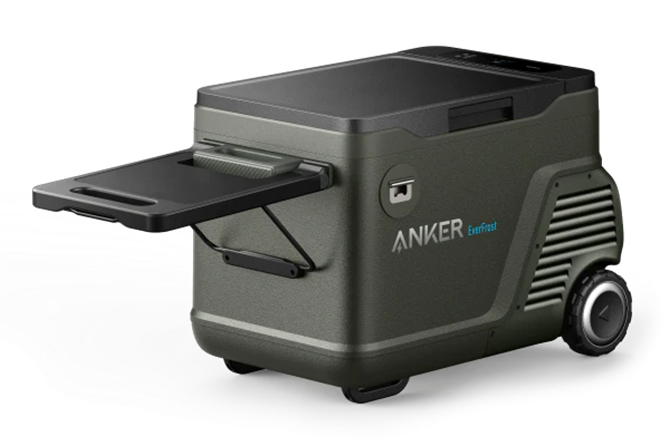
Homeowners’ Pre-loss Subrogation Waiver Upheld
July 1, 2016
Allstate Insurance Company v. ADT, LLC, formerly known as Brinks Home Security, Inc. and/or Broadview Home Security, Inc., No. 1:15—cv—517, 2016 WL 4705455 (N.D. Ga. July 1, 2016).
Background
Allstate Insurance Company issued a homeowner’s policy covering their insured’s home in Cobb County, Georgia. On March 18, 2009, ADT and Allstate’s insureds entered into a Protective Services Contract (“Contract”) in which ADT agreed to install and maintain, in the home, certain protective equipment, including a water sensor known as a “water bug.” Section 7(e) of the ADT Contract provides:
YOU UNDERSTAND AND AGREE THAT ADT’S LIABILITY TO YOU AND ALL OTHER PERSONS IS LIMITED TO A TOTAL RECOVERY OF NOT MORE THAN THE TOTAL AMOUNT OF FEES ACTUALLY PAID TO ADT UNDER SECTION 2(B) OF THIS AGREEMENT DURING THE TWELVE MONTH PERIOD PRECEDING THE EVENT OR OMISSION FOR WHICH YOU AND ALL OTHER PERSONS MAY MAKE A CLAIM AGAINST ADT. YOU ACCEPT RESPONSIBILITY FOR ANY LIABILITY BEYOND THESE LIMITS AND YOU WILL MAINTAIN YOUR OWN INSURANCE COVERAGE AS YOU DESIRE TO PROTECT YOU AND OTHERS FROM ANY LOSSES EXCEEDING THESE LIMITS. YOU WILL ENSURE THAT EACH SUCH POLICY CONTAINS A PROVISION OR ENDORSEMENT WAIVING ANY AND ALL SUBROGATION RIGHTS AGAINST ADT. YOU WILL LOOK SOLELY TO THE PROCEEDS OF SUCH INSURANCE FOR ANY LOSS, LIABILITY, DAMAGE OR CLAIM ABOVE THE LIMITS OF ADT LIABILITY TO WHICH YOU AGREE IN THIS SECTION 7.
The Contract also contains a clause exempting ADT from liability “FOR LOSS OR DAMAGE DUE DIRECTLY OR INDIRECTLY TO ANY OCCURRENCE OR CONSEQUENCES THEREFROM, WHICH THE SERVICE IS DESIGNED TO DETECT OR AVERT.”
Allstate alleges that Defendant failed to install the water bug with the correct wire connects. As a result, on January 8, 2014, while Allstate’s insureds were out of town, the Property’s pipes burst, sending thousands of gallons of water throughout the Property. Because the water bug was installed incorrectly, it did not send an alarm that a water breach had occurred, resulting in extensive water damage to the home.
Allstate’s insureds filed a claim under their policy with Allstate. Allstate then asserted a subrogation claim against ADT to recover the $113,190.27 in damages caused by the flooding.
Critical Issue
Does the limitation language in the contract with ADT bar or limit Allstate’s breach of contract subrogation claim, and does Allstate’s theory of gross negligence against ADT survive the limitations set forth in the contract.
Holding
ADT’s motion to dismiss Plaintiff’s claim for gross negligence is granted and the motion to dismiss the claim for breach of contract is denied (although the claim is limited per the contract).
Analysis
Section 1(c) of the Contract provides that ADT “will install and make operational” certain protective equipment, including a water bug, at the Property. Allstate asserted a subrogation claim for breach of contract on the ground that ADT failed to “install and make operational” the water bug.
In Georgia, parties can waive an insurer’s subrogation rights by agreeing to look solely to insurance to cover their losses. In Section 7(e) of the Contract with ADT, the insured agreed:
…YOU WILL MAINTAIN YOUR OWN INSURANCE COVERAGE AS YOU DESIRE TO PROTECT YOU AND OTHERS FROM ANY LOSSES EXCEEDING THESE LIMITS. YOU WILL ENSURE THAT EACH SUCH POLICY CONTAINS A PROVISION OR ENDORSEMENT WAIVING ANY AND ALL SUBROGATION RIGHTS AGAINST [DEFENDANT]. YOU WILL LOOK SOLELY TO THE PROCEEDS OF SUCH INSURANCE FOR ANY LOSS, LIABILITY, DAMAGE OR CLAIM ABOVE THE LIMITS OF [DEFENDANT’S] LIABILITY TO WHICH YOU AGREE IN THIS SECTION 7.
The parties agree that this constitutes a subrogation waiver but dispute whether it is an “exculpatory clause” that, to be enforceable, must be displayed prominently in the Contract. In Georgia, because exculpatory clauses may amount to an accord and satisfaction of future claims and waive substantial rights, they require a meeting of the minds on the subject matter and must be explicit, prominent, clear, and unambiguous.
Georgia courts regularly enforce subrogation waivers because, by shifting the risk of loss to a party’s insurer, they do not violate Georgia’s public policy. This approach is consistent with Georgia’s respect for parties’ sacrosanct freedom of contract and the state’s policy of enforcing contracts except where the case is free from doubt and where an injury to the public interest clearly appears. However, the Court stated that subrogation waivers do not implicate the same policy concerns as exculpatory clauses and thus require less scrutiny. According to the Court, “unlike exculpatory clauses which preclude an insured party (the victim) from obtaining compensation for the harm suffered, a subrogation waiver provision nevertheless ensures that the injured party is compensated.”
The Court found that the Contract’s subrogation waiver was not an exculpatory clause under Georgia law. To recover damages exceeding the amount specified in Section 7(e) of the Contract, Allstate’s insureds “agreed to look solely to the insurance to be procured and maintained by [them].” The Court held that Allstate’s insureds could not recover from ADT for liability they agreed to cover with insurance. The Court further stated that because Allstate, as subrogee, “cannot have rights superior to” its insureds, Allstate’s recovery for breach of contract is limited to the agreement reached in the Contract.
In addition to the breach of contract claim, Allstate asserted a claim for gross negligence on the ground that ADT failed to properly install and make operational the water bug. Many times, gross negligence claims cannot be dismissed by exculpatory clauses in a contract. However, as stated by the Court, in Georgia, “[A] breach of contract claimant may only bring a tort claim where, in addition to breaching the contract, the defendant also breached a duty imposed by law.” Thus, the court ruled that Allstate cannot assert a claim for gross negligence based solely on ADT’s alleged breach of its obligations under the Contract. Instead, the Court ruled that the claim would need to be based on an alleged breach of some independent duty created by statute or common law. Accordingly, because the court did not identify a breach of any non-contractual legal duty, Allstate’s claim for gross negligence was dismissed.
Significance
ADT argued that the waiver of subrogation was an exculpatory clause in the contract and the Court denied this argument. Unfortunately, Allstate was left with the limit of liability set forth in the contract as its only recourse for recovery, as all damages above the limit of liability are subject to a waiver of subrogation. Further, in Georgia, to proceed with a gross negligence claim on a loss caused during the performance of a contract will require identifying a breach of a non-contractual duty.



